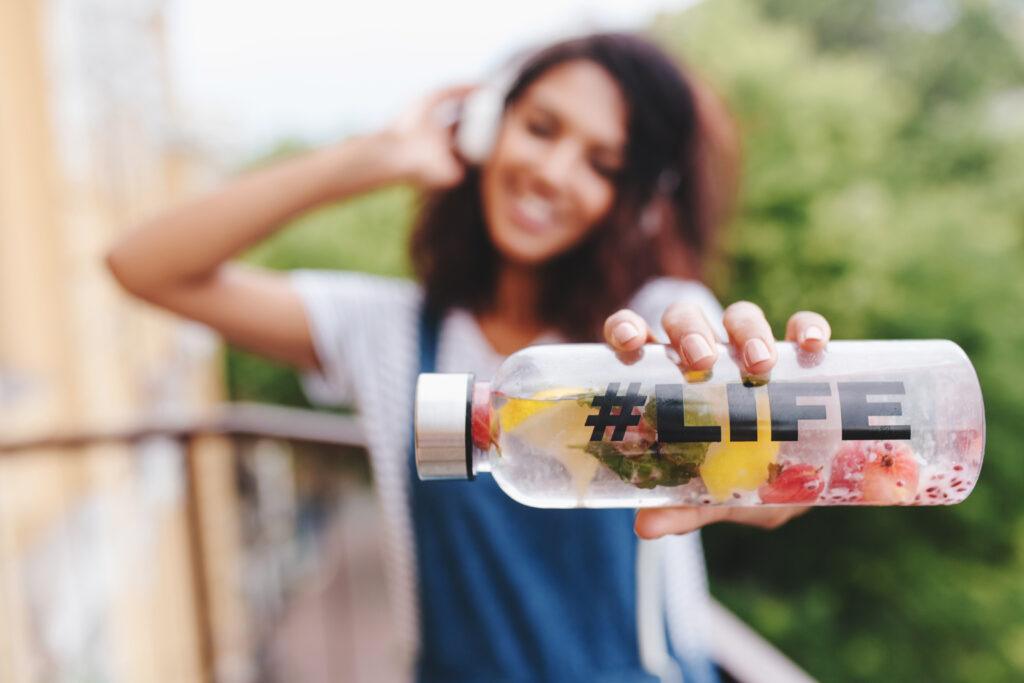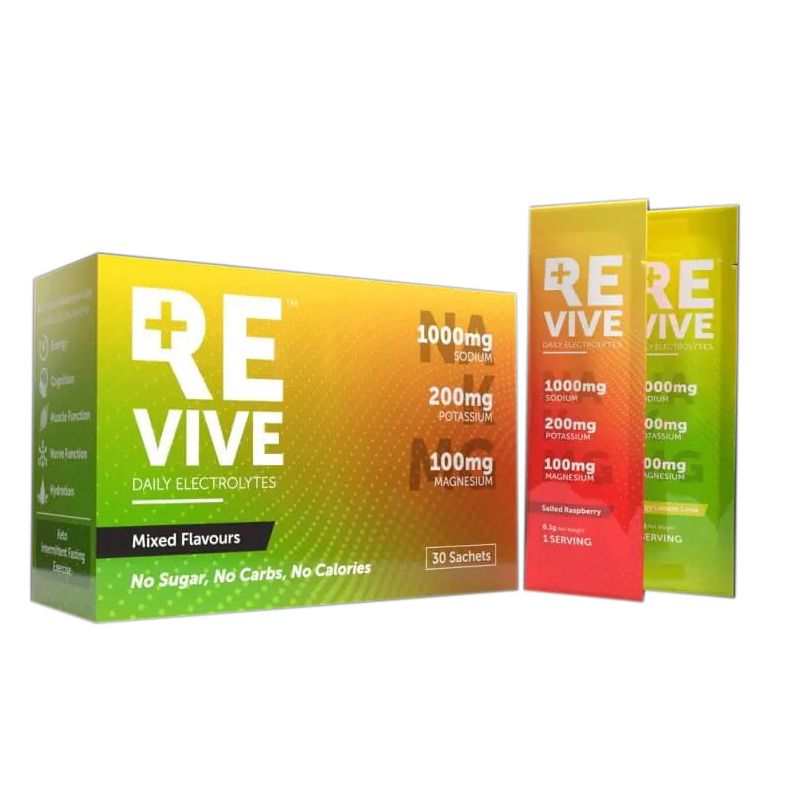
It’s easy to take water for granted, but when you realize that humans can go 3 weeks without food but can’t go more than 3 days without water, we truly understand that value of water.
Everyone knows that we need water to stay alive, but did you know that what you hydrate with is just as crucial?
Water helps move oxygen through our bodies, assists in digesting the foods we eat, boosts performance during high levels of physical activity, and ensures our cells; tissue; and organs function normally…
And when the water we drink contains electrolytes, in most cases that’s all the better for our bodies.
To say that electrolytes are important is a massive understatement. They’re essential.
What is Dehydration?
Dehydration is defined as net water loss, or losing more water than you take in resulting in a low body water state. Dehydration can cause a variety of symptoms including:
- Headache
- Fatigue
- Cramps
- Dry mouth
Different types of dehydration exist, with different effects on the body.
The most common form of dehydration is isotonic dehydration: proportional losses of sodium and fluids, typical caused by sweating.
Another type of dehydration is hypertonic dehydration (greater water losses) and hypotonic dehydration (greater sodium losses). Anything with a diuretic effect (think detoxing and keto dieting) falls into the hypotonic category. This is when you lose sodium more quickly than you lose the optimal amount of water for that sodium to exist in.
Fluids are most commonly lost through sweating, vomiting, urinating, diarrhea, breathing and living in general and need to be replaced eventually, but how should you replace them?
Standard hydration guidelines revolve around drinking plain water (you’ve probably heard of the 8×8 rule – drinking eight 250ml glasses of water per day to prevent dehydration). However, healthy hydration isn’t just about drinking plain water. It’s also about fluid balance, and electrolytes are an essential part of fluid balance.
Without electrolytes, you run the risk of over-saturating your body with water. This is called overhydration, and it’s arguably more dangerous than dehydration. This doesn’t mean we should stop drinking fluids. However, we should consume electrolytes along with our fluids.

The wrong way to hydrate
There is of course a wrong way and a right way to rehydrate.
Drinking too much plain water can be harmful as it dilutes sodium levels in the body. This isn’t just an issue for elite athletes, but for all of us too. If we replace fluids alone without replacing electrolytes, we’ll also be low on sodium. This may result in headaches, fatigue, weakness, and low energy.
Healthy hydration = water plus + electrolytes.
What are Electrolytes?
Electrolytes are essential minerals in your body such as sodium, potassium, magnesium and calcium. They are the tiny particles in our body that carry electrical charges. Electrolytes are vital to many key functions in the body.
They serve many roles to help the body maintain proper function. When you sweat, electrolytes play key roles in keeping water balanced both inside & outside of cells so that your muscles and organs can continue to serve you properly. Essentially, electrolytes keep your whole body in balance.
Why are Electrolytes so Important?
When you sweat your body loses both fluid and electrolytes and dehydration can occur if you do not hydrate properly and when needed, which can have several negative impacts.
Replenishing electrolytes in your body not only prevents dehydrations but also helps make the most of the water you drink, which is the key to proper hydration.
Replenishing electrolytes ensures the maintenance of magnesium, calcium, potassium, and sodium. Fluids in your body transport these minerals through your body and produce an electrical energy that helps:
- Keep your body’s fluids balanced
- Regulate and help stabilize your blood pressure
- Help your muscles — including your heart — contract
- Maintain the right amount of acidity in your blood (pH)
What do Electrolytes do for the Body?
Electrolytes are involved in many important processes in the body. That’s why, in addition to fluid levels, you need to maintain electrolyte levels for the body to function properly.
Sodium (Na) – maintains fluid balance
Sodium is the most important electrolyte to monitor during training. Excessive losses of sodium (via sweat) can lead to muscle cramps, and in some cases hyponatremia (low blood sodium) – both can lead to a decrease in performance, and can cause major health complications. Sodium is critical for maintaining fluid balance, nerve function, muscle contractions, and acid-base balance. Sodium losses in sweat are greater than any other electrolyte. Therefore, it is crucial to maintain an adequate balance, both during your activity and after.
Potassium (K) – prevents cramping
Potassium in conjunction with sodium helps alleviate and prevent muscle cramps. Potassium is abundant in many food sources, and the average individual has high stores within the body. In sweat, potassium losses are not as high as sodium, however, it is crucial to maintain potassium levels while training as it will be critical for a healthy water & electrolyte balance.
Calcium (Ca) – regulates muscle contractions & heart rhythm
Calcium is the most abundant mineral in the body. It serves many roles both in normal bodily functions, and athletic performance. It is well documented that calcium is essential for bone and muscle health. Calcium is also involved in all types of muscle (heart, skeletal, and smooth) functions and contractions.
Magnesium (Mg) – relaxes muscles
Similar to how sodium and potassium function together, magnesium and calcium do the same. Calcium is essential for muscle contractions; magnesium aids in helping muscles relax. Therefore, the combination of magnesium and calcium is critical for healthy muscle function.
Bicarbonates – may delay fatigue & enhance endurance
One of the key benefits of having fluids that contain sodium bicarbonate is that it buffers lactic acid in the blood. During tough workouts, lactic acid builds up which stresses the anaerobic glycolysis energy system. When this energy system becomes disrupted, the acid accumulations inhibit muscle contractions, which leads to fatigue.
Without the proper amounts of electrolytes, you can have an electrolyte imbalance.

Electrolyte Imbalance
Electrolyte levels can become too high or too low, known as an electrolyte imbalance, which can be caused by various reasons.
Electrolytes such as sodium and potassium are lost specifically in sweat during exercise. This is why you need to replenish these electrolytes with either a sports drink or a coconut water after physical activity that causes excessive sweating.
Other reasons for an electrolyte imbalance include vomiting or diarrhoea, drinking excessive alcohol, purging behaviours, dietary restrictions, intense exercise, as well as certain drugs like diuretic medications (water pills) can also lead to a disruption in the balance of electrolytes.
Symptoms of Electrolyte Imbalance
Given that electrolytes play a critical role in so many processes in the body, it is not surprising that disruption of electrolyte balance can cause wide-ranging symptoms. Some of the symptoms of electrolyte imbalances include:
• Headache
• Nausea
• Fatigue
• Muscle weakness
• Abnormal muscle contractions (muscle twitching or muscle spasms)
• Confusion
• Numbness and tingling
Ketofast and Electrolytes
Sodium intake on a keto fast diet is very important to manage, as we will naturally have less sodium in our bodies when on a keto fast diet.
When on a keto fast diet, the diet often excludes all meals or products with a high sodium content, which is why we do not consume as much sodium as we need. As a result, our sodium levels drop.
Not only do we not consume enough sodium on a keto fast meal plan, as mentioned above, keto fast and detox packages may cause a diuretic effect. This means that if you are on a keto fast diet or on a detox diet then you will probably be losing sodium very quickly because of the amount of water which is lost.
Sodium and potassium work together, so when we lose sodium while on a keto fast diet, we also lose potassium which lands up making us feel worse.
This is why it is very important to manage your electrolyte level while on a keto fast diet. For this very reason, we recommend taking an electrolyte supplement.
How Can I Get Electrolytes Naturally?
While sports drinks are an easy source of electrolytes, they are not right for everyone. Not to mention the amount of sugar and additives in sports drinks, which may not be necessary for anyone who is not doing intense exercise.
If you want a natural but more flavourful alternative to water for hydration, fresh coconut water can be a good option. It has a somewhat similar composition to the traditional sports drink. However, you should read the label to make sure there is no added sugar. Note that coconut water may not have enough electrolytes and essential minerals needed to be replenished after intense workouts.
In terms of food, the average person can get the recommended intake of electrolytes through a balanced healthy diet. Some of the natural food sources of common electrolytes include:
Sodium: Table salt, pickled foods, processed foods, sauces, soups, tomato juice
Potassium: Plain yogurt, fruits and vegetables like bananas, sweet potato, avocado
Chloride: Table salt, tomato juice, sauces, soups, olives, lettuce
Calcium: Dairy products, green leafy vegetables like spinach and kale, sardines
Magnesium: Seeds and nuts, spinach, halibut.
How much do I need?
With all the electrolyte drinks available on the market today, replacing electrolytes is as easy as buying bottles in the grocery store. However, it’s all about balance. If you replenish electrolytes faster than you’re losing them, that can add too many electrolytes to your system and make you sick.
To be sure you’re replenishing your electrolytes in the right amounts and avoiding a harmful imbalance, take a gradual, consistent approach. Focus on consuming enough electrolytes in your water or beverage to support your body’s functions — without overwhelming it.
It’s all about balance and making sure your electrolyte drink doesn’t contain too many electrolytes, such as high levels of sodium or calcium.
Conclusion
Everyday life calls for everyday electrolytes. Staying hydrated through your workday or daily to-do list are important too! Remember thirst is the #1 indicator that you may be dehydrated.

